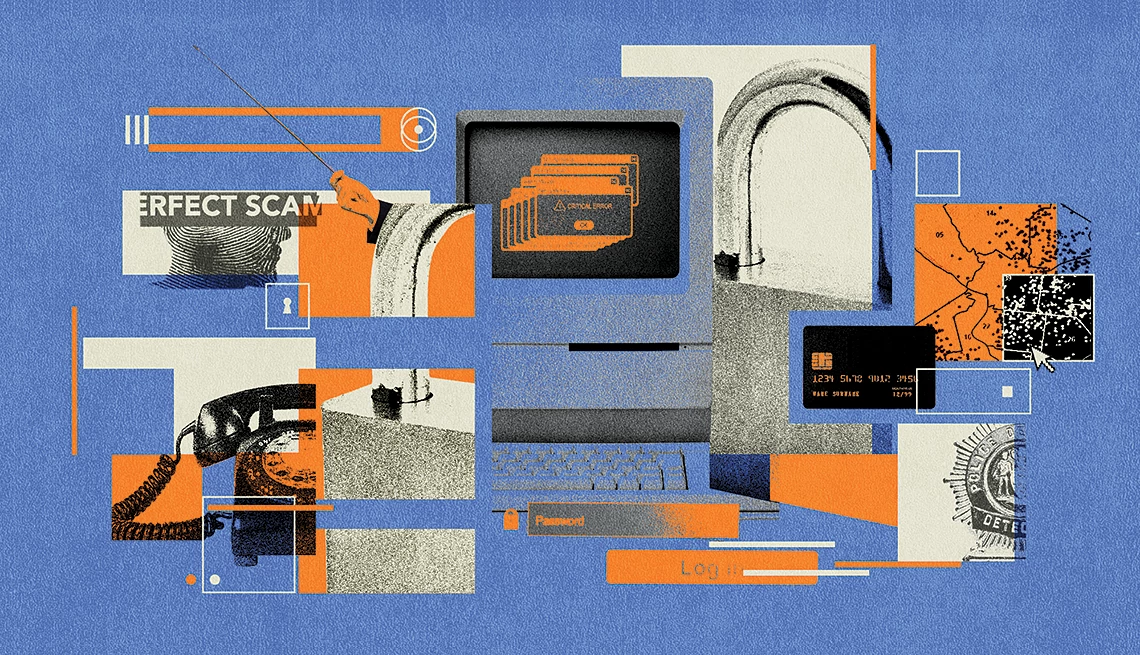AARP Hearing Center


Incidents of fraud have exploded in recent years, with Americans reporting a record $10 billion stolen in 2023, according to the Federal Trade Commission (FTC). And that’s likely a small fraction of the total, since experts believe that the vast majority of scams and other fraud goes unreported.
Now a new AARP report has found that a stunning 42 percent of American adults have had a personal experience with fraud. “That’s huge,” says Kathy Stokes, AARP’s director of fraud prevention programs. “Ten years ago, the presumptions were that maybe about 15 percent of people had experienced fraud.”
The figure is based on a survey of 2,230 U.S. adults, meant to assess their understanding and awareness of various kinds of scams, and all the findings are summarized in the AARP report “The Fraud Crisis in America: How Adult Consumers Feel, What They Know and Their Actions That Pose Risk.”
The report also found that most Americans (58 percent) are worried about these crimes. Adults 50 and older are more likely to have a high level of concern about fraud, with 63 percent putting their level of worry between 6 and 10 on a scale of 0 to 10. That’s compared with 53 percent of respondents age 18 to 49 who say they are very worried.
Both age groups are about as likely to have had money stolen due to fraud or sensitive information stolen and used fraudulently, but older adults on average lose more money to scams than their younger counterparts.
Black respondents are the most likely to have been fraud victims: 56 percent versus the average 42 percent.
Black adults are also the most likely to express higher levels of worry about becoming fraud victims (36 percent). Hispanic (35 percent) and veteran (32 percent) respondents were more likely than average (29 percent) to express worry about victimization.
Fraud risk awareness: the good news
The results suggested that understanding about fraud is improving in some areas:
- Most people (91 percent) are aware that fraud can happen to anyone. The majority of Americans seem to understand that criminals’ emotional manipulations can be extremely sophisticated; often part of international crime rings, they hone their techniques by targeting a huge number of potential victims. “For far too long, we have had this tendency to believe that fraud only happens to people who are gullible,” says Stokes. “But this sentiment has been turned on its head.”
- The vast majority of adults (96 percent) know that being directed to purchase gift cards to handle an urgent financial matter is a scam tactic. That’s an increase from last year, when only about three-quarters of those surveyed said they knew that it’s always a scam when you are asked to make a payment or send money by purchasing a gift card and sharing the number on the back of the card. Gift cards are a hugely popular way for criminals to receive cash — as is crypto. (When someone directs you to use a cryptocurrency ATM to address a financial concern, you’re dealing with a scammer.)




































































More From AARP
What to Know About the Latest Amazon-Impostor Scams
Be aware of the latest ways criminals use the company’s name to steal from consumersWhat to Do If You've Just Been Scammed
How one woman worked quickly — with help — to avoid being charged through PayPal
AARP’s Fraud Fighters See the True Cost of Scams Every Day
Volunteers at the AARP Fraud Watch Network Helpline are devoted to supporting and assisting victims
What to Do After You’ve Experienced a Scam
Take these key steps to protect your bank accounts and personal information, and find the support you needRecommended for You